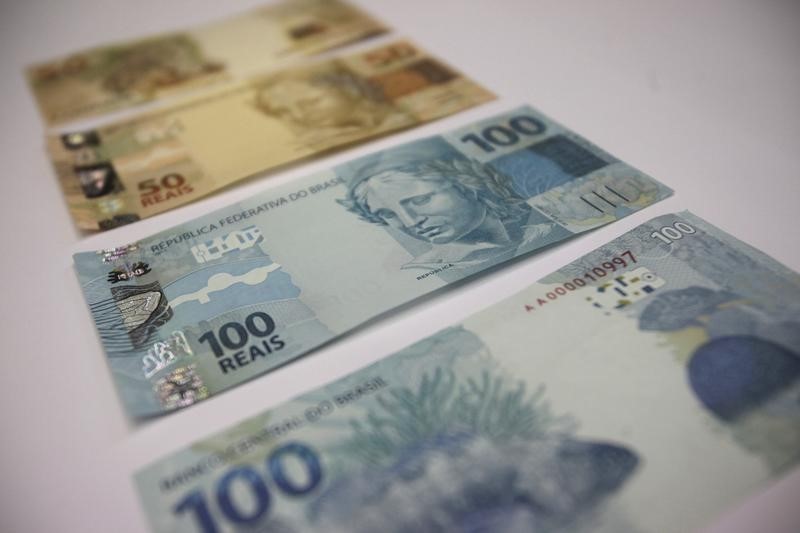By Silvio Cascione
BRASILIA (Reuters) - Emerging market currencies will stay under pressure in 2015, a Reuters poll found, though they may not fall as much as last year as lower commodity prices and tighter monetary policy in the United States could be largely priced in already.
All major emerging market currencies except the Mexican peso <MXN=> are set to drop further this year, according to the median views of more than 80 strategists and economists polled.
The Brazilian real <BRL=>, the Turkish lira <TRY=> and the South African rand <ZAR=>, which plunged near or more than 10 percent to decade-lows in 2014, are expected to slide 1-5 percent through 2015.
The median forecast for the Russian rouble <RUB=>, caught in the middle of a capital flight crisis, is pegged at stronger than its current level, but the most pessimistic estimate has it falling another 30 percent.
"The dichotomy between the monetary policy stances in the U.S. and UK and those in Europe and Japan, coupled with falling commodity prices and a weaker Chinese growth and activity outlook, makes for a rather lethal cocktail for emerging-market currency risk," said Jeffrey Schultz, an economist with BNP Paribas Cadiz Securities in Johannesburg.
The problem is the list of potential risks is not new. Oil, for example, has plummeted more than 50 percent since mid-2014 and may bottom out before year-end, and the Federal Reserve has telegraphed expected 2015 rate hikes.
For some analysts, the risk that emerging market currencies actually strengthen later this year is higher than in 2014, especially if the Fed tightens monetary policy too slowly.
"People will realize it would not be the end of the world, and then the currencies will regain some ground," said Cristiano Oliveira, an economist with Banco Fibra in Sao Paulo.
Herd mentality will not take traders too far either, analysts say.
Although the forecasts suggest an uniform impact across emerging market currencies, Brazil, Turkey and Mexico, to name a few examples, differ on their exposure to lower oil prices and on their intervention in currency markets.
In Turkey, a net oil importer, cheaper fuel may help hold the currency around current levels through the first half of the year, according to the poll, whereas in oil-producing Mexico the effect should be the opposite.
Both countries have also stepped up market intervention recently, unlike Brazil, which has reduced currency swap sales recently to keep some powder dry.
Monetary policy should also help some emerging currencies outperfom others.
With the exception of Indonesia, Russia and Brazil, central banks are with a bias to ease in 2015 as global growth sputters, according to strategists at Brown Brothers Harriman.
In some countries such as Chile, policymakers will face a difficult choice: they may want to cut rates to stimulate their economies, but could fear renewed currency weakness.
"Despite heightened risk aversion, we believe that differentiation will remain crucial," wrote Drausio Giacomelli, head of emerging markets research at Deutsche Bank.
